Input interpretation

1-amino-1-cyclopentanemethanol
Chemical names and formulas
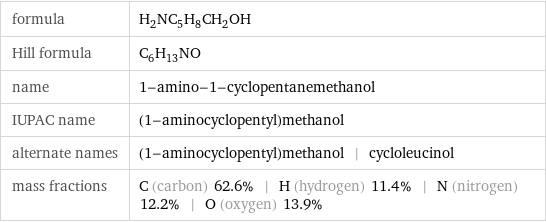
formula | H_2NC_5H_8CH_2OH Hill formula | C_6H_13NO name | 1-amino-1-cyclopentanemethanol IUPAC name | (1-aminocyclopentyl)methanol alternate names | (1-aminocyclopentyl)methanol | cycloleucinol mass fractions | C (carbon) 62.6% | H (hydrogen) 11.4% | N (nitrogen) 12.2% | O (oxygen) 13.9%
Lewis structure
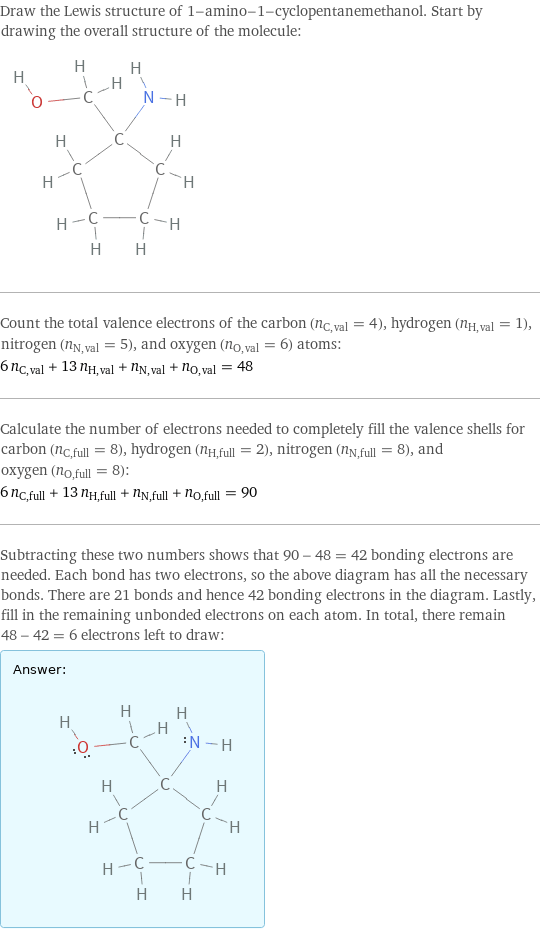
Draw the Lewis structure of 1-amino-1-cyclopentanemethanol. Start by drawing the overall structure of the molecule: Count the total valence electrons of the carbon (n_C, val = 4), hydrogen (n_H, val = 1), nitrogen (n_N, val = 5), and oxygen (n_O, val = 6) atoms: 6 n_C, val + 13 n_H, val + n_N, val + n_O, val = 48 Calculate the number of electrons needed to completely fill the valence shells for carbon (n_C, full = 8), hydrogen (n_H, full = 2), nitrogen (n_N, full = 8), and oxygen (n_O, full = 8): 6 n_C, full + 13 n_H, full + n_N, full + n_O, full = 90 Subtracting these two numbers shows that 90 - 48 = 42 bonding electrons are needed. Each bond has two electrons, so the above diagram has all the necessary bonds. There are 21 bonds and hence 42 bonding electrons in the diagram. Lastly, fill in the remaining unbonded electrons on each atom. In total, there remain 48 - 42 = 6 electrons left to draw: Answer: | |
3D structure
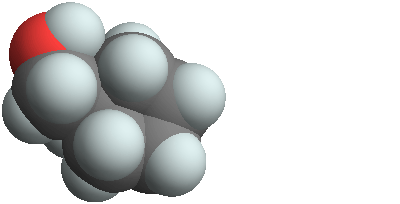
3D structure
Basic properties
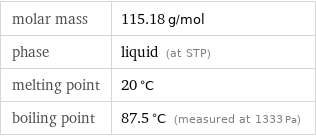
molar mass | 115.18 g/mol phase | liquid (at STP) melting point | 20 °C boiling point | 87.5 °C (measured at 1333 Pa)
Units

Chemical identifiers
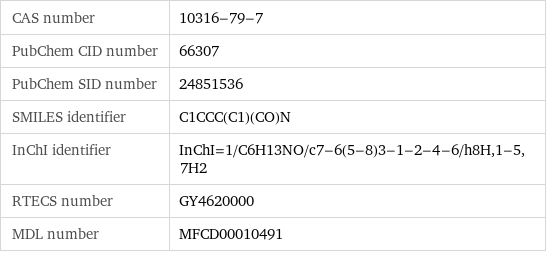
CAS number | 10316-79-7 PubChem CID number | 66307 PubChem SID number | 24851536 SMILES identifier | C1CCC(C1)(CO)N InChI identifier | InChI=1/C6H13NO/c7-6(5-8)3-1-2-4-6/h8H, 1-5, 7H2 RTECS number | GY4620000 MDL number | MFCD00010491
Safety properties

flash point | 95.56 °C